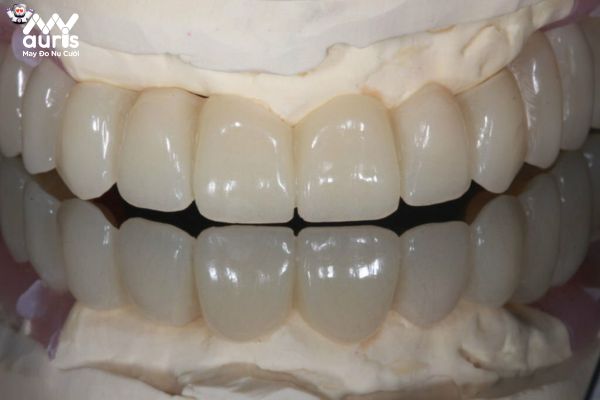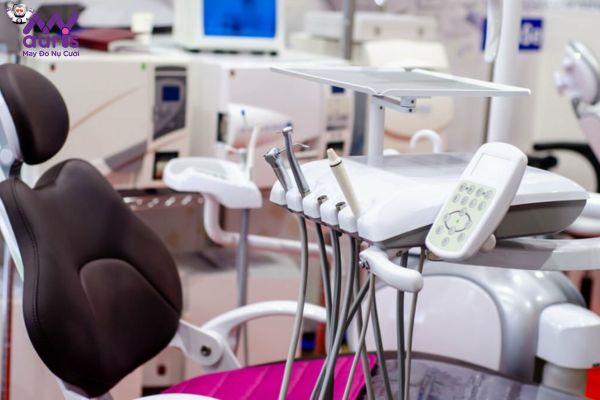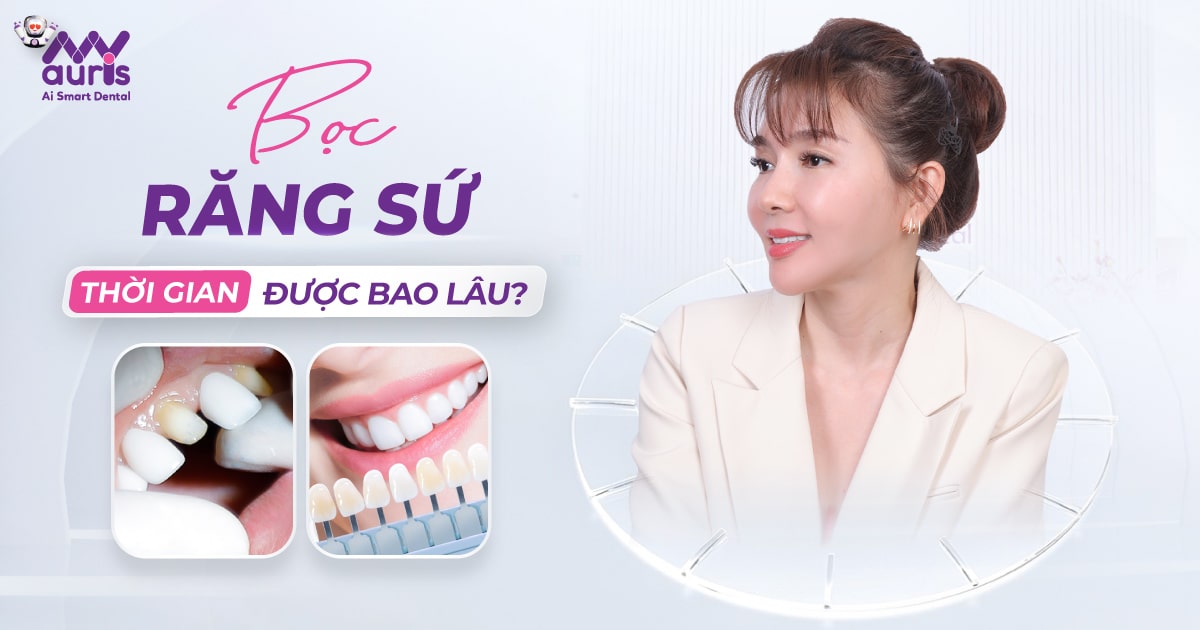Ceramic dental crowns are one of the cosmetic dentistry methods that are commonly applied today. In particular, how long it takes to replace new teeth with porcelain crowns is one of the issues that many people are interested in when learning about this method. In this article, let’s find out a detailed answer from My Auris dentists!
How long does it take to get porcelain crowns?
How long porcelain dental crowns last is always something that millions of customers who want to do it wonder. According to doctors, the lifespan of porcelain teeth will usually last from 15 to 20 years. However, each type of porcelain tooth will bring different durability, based on the composition to be divided into the following types:

Metal porcelain teeth type
Metal ceramic teeth, if well and scientifically cared for, will last from 5 to 10 years. However, the metal characteristic easily causes irritation and causes blackening of the gum line. Therefore, the durability of this line of cosmetic teeth will not be too high.
Metal-free porcelain teeth
All-ceramic teeth will age The lifespan is from 10 to 20 years and if done properly and with good care, the tooth line can be used forever. This material is characterized by uniformity in material, ensuring safety for the gums.
All-ceramic crowns will limit the risk of complications such as blackening of the gum line, irritation, sensitivity when eating hot or cold foods, etc. Furthermore, the durability of the teeth in this case is often higher than that of metal-ceramic crowns.
In addition, how long porcelain crowns last will depend on how you take care of your teeth, the location of the dental work and your current dental condition,…
What factors does the longevity of porcelain teeth depend on?
As mentioned, how long porcelain crowns last depends on a number of factors. We invite you to join My Auris dentistry to find out why each person uses porcelain teeth for different times.
Doctor’s restoration techniques

Doctor’s techniques will affect directly affects the longevity of your teeth. Some consequences of porcelain crowns can occur if the treatment is performed incorrectly, teeth are ground at the wrong rate, such as dead pulp, food stuffing, exposed roots, bad breath, etc. If you encounter the above conditions, you should go to a reputable dental facility to have a doctor quickly replace new teeth.
On the other hand, the porcelain crown process also has a lot to do with the results after implementation. With a standard process, the finished product will ensure high durability, as well as limit many complications for you.
Dental health before making porcelain teeth
Before getting porcelain crowns, you need to go to a reputable dentist to have the actual condition examined. If you are unlucky enough to suffer from gingivitis, pulpitis, periodontitis, etc., you will need thorough treatment first. This is a factor that largely determines the longevity of porcelain teeth. At the same time, If your teeth are weak, you should not have porcelain crowns to limit complications.
Supporting equipment from the clinic

With different types of equipment However, if you choose a facility with poor quality and only old, outdated machinery, complications may arise. Therefore, you should choose a reputable dental facility to perform it.
Using porcelain crowns
As mentioned, how long porcelain crowns last depends on the type of porcelain teeth you choose, because each type will have a different lifespan. If the front teeth are broken, chipped, or decayed, all-ceramic teeth are the ideal choice because the durability of this material can last from 15 to 20 years, guaranteed Ensures high aesthetics.
On the other hand, metal porcelain teeth will be cheap and have less bearing capacity than all-ceramic teeth. Furthermore, after a period of use, you will experience blackening of the gum lineAbout 5 to 7 years, you need to replace new teeth to ensure your health.
Position of porcelain teeth
Position of restoration is also important. a factor that affects the longevity of porcelain teeth. If you restore the restoration in a location where it overlaps, the porcelain durability is likely to decrease. The reason is that you will often put pressure on your teeth when chewing foods.
Tips to help maintain the durability of porcelain teeth
Once you know how to get porcelain crowns, How long does it take? To keep the longevity of porcelain teeth stable, you need to pay attention to the following points:
- You should only eat soft, easy-to-chew foods after porcelain teeth. Hard and chewy foods have the potential to damage tooth roots and break the bonds between tooth root posts.
- Do not eat foods that are too hot or too cold, especially after porcelain teeth.
- Limit foods that contain a lot of sugar – They not only affect the longevity of teeth but also affect the color of teeth.
- Limit drinking colored drinks such as coffee, soft drinks,… because they will make your natural teeth and porcelain teeth tarnish faster.
- Limit the habit of teeth grinding. If you have this habit, wear a mouth guard while sleeping to protect your porcelain teeth.
- Clean your teeth properly every day, brush your teeth at least twice a day, use dental floss, mouthwash, and water flosser if possible.
- Remember to schedule a visit with your doctor to have your teeth checked and scaled every 6 months. Through examination, the doctor can also promptly detect complications and fix them most effectively.
When do you need to replace porcelain teeth?
The Porcelain crowns all have a shelf life, some are only a few years but some are more than 15 years. However, no matter how long the porcelain crown is in place, it will be affected during the chewing process, causing the porcelain teeth to chip or chip, affecting the real teeth inside. Some signs that you need to replace new teeth:

- Pain in porcelain-covered teeth, around the porcelain rim, gums,…
- A misaligned bite, not being able to bite teeth together like normal or having bite pain.
- The tooth root line (gum edge) is exposed, tooth sensitivity when eating hot or cold foods.
- The porcelain teeth are stained yellow, turn black and are accompanied by a bad odor tolerate.
- Teeth showing signs of deterioration, wearing down the chewing surface, making it difficult for you to crush foods.
Depending on each specific case, doctors can correct it on their own. If the damage is not too serious, the porcelain crown will save costs for the patient. However, if the porcelain tooth is damaged and there is a risk of infection, it can cause other dental diseases or affect the aesthetics. At this time, the doctor will advise you on how to replace the porcelain crown appropriately. It cannot be said that it is the same for everyone because it is affected by many factors. Therefore, if you have porcelain teeth, you should choose all-ceramic teeth to ensure aesthetics, durability and longevity. At the same time, do not forget to pay attention to oral hygiene and visit your doctor twice a year to get checked and handle any problems that arise as quickly as possible.
Yen Nhi





